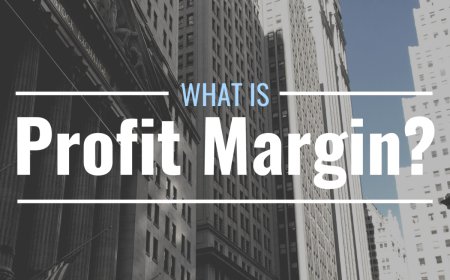Follow-On Public Offer (FPO)

Follow-On Public Offerings (FPO)
Introduction:
An FPO stands for "Follow-on Public Offering." It's a way for a company to raise more money by issuing more of its shares to the public after it has already become a publicly traded company. The companies that have already raised funds through IPOs by issuing their shares for the first time can issue additional shares through FPOs.
An FPO can be a good option for companies that have already established a track record of success and have a strong following of investors willing to buy additional shares. However, FPOs can also dilute the ownership and earnings per share of existing shareholders, which investors consider before participating in an FPO.
How a Follow-on Public Offer (FPO) Works:
Here is how an FPO works to issue additional shares to investors.
- Intermediaries Appointment: The company that wants to issue an FPO appoints intermediates such as investment banks and underwriters for assistance.
- Offer Document: The company prepares and files with SEBI an offer document for the FPO, which contains detailed information, such as FPO size, lot size etc.
- Pricing: Once SEBI approves the offer document, the company sets a price per share for the FPO. It is the price at which investors will apply for the shares included in the lot.
- Opening and Closing: The company opens the FPO for a certain period, during which investors can place their bids. Once the bidding period is over, the FPO is closed.
- Allotment and Listing: Once the FPO application closes, the company allots the shares to investors who applied, along with the final offer price. Afterwards, the shares are listed on the stock exchanges.
Why do the companies Launch FPO?
An FPO is one of the best ways for companies to ensure their operations run smoothly. Here are why companies Launch an FPO:
-
Capital raising: One of the primary reasons companies launch an FPO is to raise additional funds for the company. Companies can use these funds to pay off loans. Also, this fund can be used to expand the business, introduce new products or services, or invest in technology.
-
Increase liquidity: By expanding the number of shares accessible in the market, FPO boosts the liquidity of the company's shares. This makes it easier for investors to buy and sell firm stock.
-
Seize Market Opportunities: A corporation may occasionally come upon unforeseen opportunities that necessitate rapid investment. By holding an FPO, the company can swiftly raise financing and capitalize on these opportunities.
-
Diversification: An FPO allows corporations to diversify their investor base by selling shares to new investors. It also results in a diversification of the company's equity basis.
-
Improve a company's market reputation: A successful FPO can boost a company's market reputation by demonstrating investors' trust in the company's development prospects and financial stability.
Disadvantages of FPO:
There are some drawbacks to issuing an FPO in the market:
-
Dilution of Ownership: When the company sells more shares, it increases the total number of shares in the market, which means each existing shareholder's ownership becomes a smaller piece of the company. This is called "dilution," and it can reduce the control and influence of existing shareholders.
-
Market Risks: Conducting an FPO means the company is selling more shares to the public at a certain price. However, if the stock market is not doing well or if investors are not interested in buying the new shares, the company might not get the price it wanted. This can impact the amount of money the company raises and may not be favorable for existing shareholders.
-
Costs and Regulations: Organizing an FPO involves costs, companies need to pay fees to financial institutions, legal advisors, and comply with various regulations set by the government and stock exchanges. These costs can be significant and eat into the money raised from the offering.
What's Your Reaction?
 Like
0
Like
0
 Dislike
0
Dislike
0
 Love
0
Love
0
 Funny
0
Funny
0
 Angry
1
Angry
1
 Sad
0
Sad
0
 Wow
0
Wow
0







































































